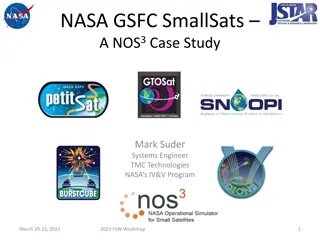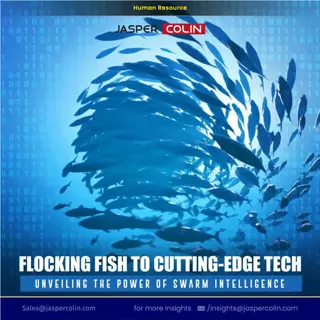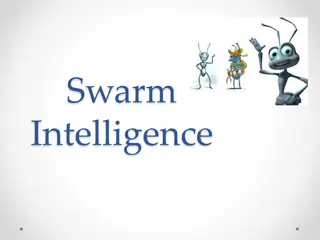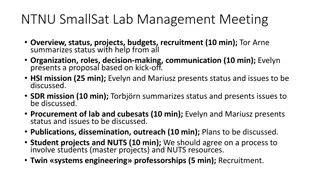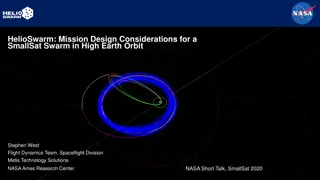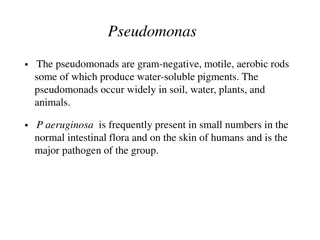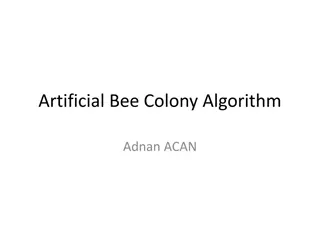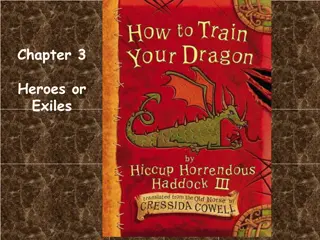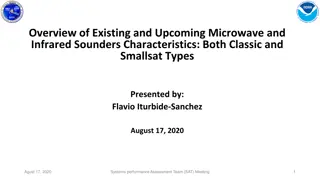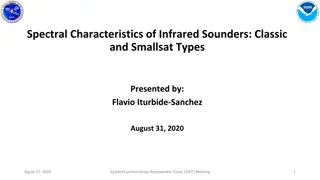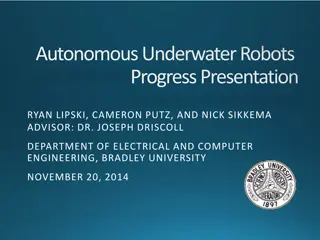NASA SmallSat Development: FSW Workshop Insights
Delve into NASA's SmallSat development through the eyes of systems engineers and software experts. Explore NOS3 architecture, virtual machines, and hardware platforms for Low Earth Orbit and Geosynchronous Equatorial Orbit buses. Gain valuable insights from the FSW Workshop sessions held in March 20
0 views • 14 slides
Exploring the Wonders of Swarm Intelligence
Imagine millions working together, achieving complex goals without a boss! This isn't a dream, it's swarm intelligence (SI), inspired by nature (think ants & bees!).\n
4 views • 8 slides
Understanding Swarm Intelligence: Concepts and Applications
Swarm Intelligence (SI) is an artificial intelligence technique inspired by collective behavior in nature, where decentralized agents interact to achieve goals. Swarms are loosely structured groups of interacting agents that exhibit collective behavior. Examples include ant colonies, flocking birds,
2 views • 88 slides
NTNU SmallSat Lab Management Meeting Overview and Project Updates
Presentation of status, budgets, and projects at the NTNU SmallSat Lab Management Meeting, including recruitment, proposal discussions, and infrastructure updates. Issues related to missions, procurement, publications, and student projects were also covered.
0 views • 5 slides
Fascinating Collective Nouns of Animal Groups Explained
Delve into the world of collective nouns with examples like a pride of lions, a swarm of rats, and a parliament of owls. Learn how these unique terms define groups of animals and enhance your vocabulary with interesting word formations.
0 views • 22 slides
Mission Design Considerations for a SmallSat Swarm in High Earth Orbit
HelioSwarm presents a mission concept involving a propulsive ESPA hub deploying smallsat nodes in a lunar resonant orbit. The swarm design requirements focus on complex hub-relative trajectories for each node, emphasizing high-rate data crosslinks and measurement-optimized tetrahedra formation. Smal
6 views • 7 slides
Understanding Pseudomonas and Proteus Bacteria
Pseudomonas is a group of gram-negative, motile, and aerobic bacteria found in various environments, with Pseudomonas aeruginosa being a significant pathogen in humans. It can produce distinctive pigments and is resistant to many antimicrobial agents. Lab diagnosis involves culture testing on specif
0 views • 17 slides
Understanding Swarm Intelligence and the Artificial Bee Colony Algorithm
Swarm intelligence refers to the collective behavior of interacting agents, achieving intelligent outcomes through self-organization and division of labor. The Artificial Bee Colony Algorithm is inspired by the foraging behavior of honey bees, utilizing concepts like self-organization, division of l
0 views • 21 slides
Heroes or Exiles: Dragons, Vikings, and Adventures
In Chapter 3 of "Heroes or Exiles," the story unfolds with dragons attacking and the intriguing dynamics between characters like Hiccup, Gobber, and Fishlegs. Through focused reading questions and a prediction about a dragon, the narrative dives into a world of bravery, camaraderie, and self-discove
0 views • 5 slides
Advancements in Microwave and Infrared Sounders for Weather Forecasting
Microwave and Infrared sounders play a crucial role in weather forecasting by providing valuable data for atmospheric studies and climate research. The existing generation of sounders like ATMS, CrIS, and AIRS has been successful, but new advancements in smallsat technology aim to enhance temporal r
0 views • 7 slides
Spectral Characteristics of Infrared Sounders: Overview and Comparison
This presentation discusses the spectral characteristics of classic and smallsat types of infrared sounders, focusing on key parameters of LEO hyperspectral IR sounder sensors, spectral coverage, resolution, sampling, as well as the impact of spectral bands on power consumption and volume in smallsa
0 views • 4 slides
Progress Presentation of Autonomous Underwater Robots
This presentation showcases the progress made by a team in developing autonomous underwater robots at Bradley University. The project objectives include mapping underwater terrain, navigating a swarm of UAVs, obstacle avoidance, and generating final images. The presentation covers system block diagr
0 views • 42 slides
